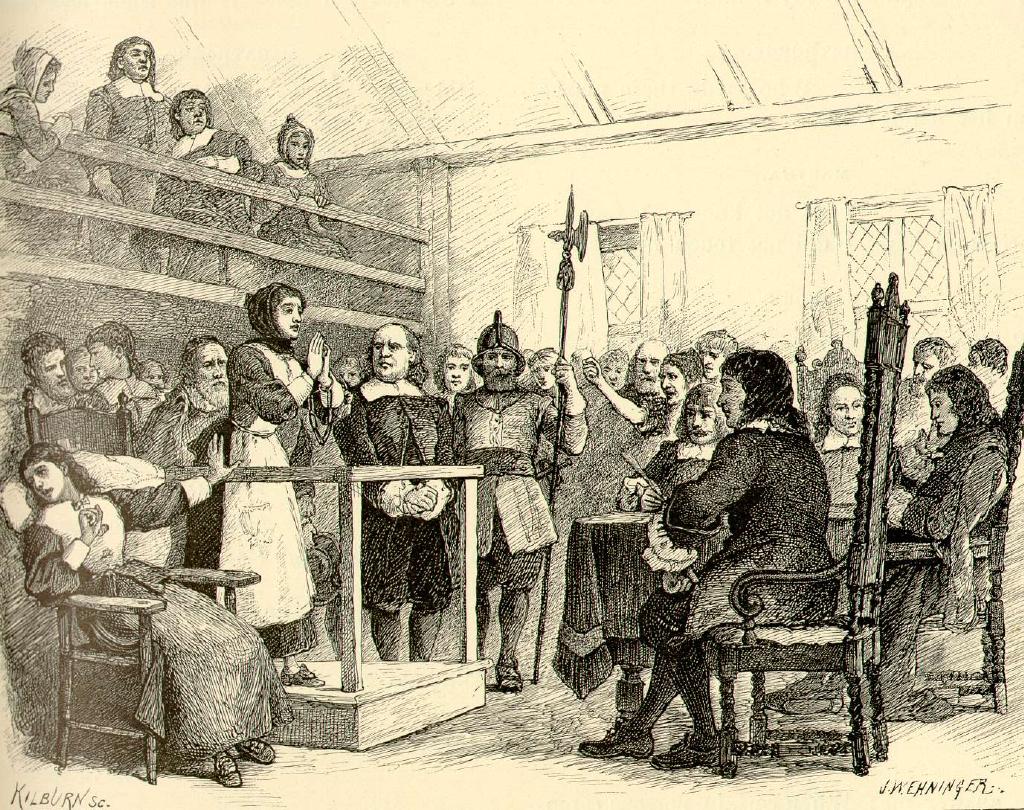Blog
Stepping Up in Bible Reading
Wednesday, January 30, 2019

Nearly every gospel preacher on the planet, including both Shawn and me, will advocate reading the Bible on a regular, ideally daily, basis. Most Christians will agree that, yes, it would be good for them spiritually if they were to carry a Bible-reading program to its conclusion. However, I suspect that most Christians never have managed to read the Bible cover-to-cover despite those good intentions.
If that’s you, don’t feel bad about that, so long as you intend to do better this year. Though it seems simple, sticking with a Bible-reading program is quite difficult. I myself didn’t manage it until 2013, despite having preached the gospel for nearly 10 years by then. In the years since, though, I’ve read through the Bible at least one time every year, and I’ve learned a few things about reading along the way. This morning, I’d like to share them with you so that all of us can step up in Bible reading.
First, I’d like to discuss the importance of CHOOSING THE RIGHT BIBLE. I don’t think this is something that most Christians think about, but the Bible we select to do our reading has everything to do with how successful we will be. For instance, at home, I’ve got this awful purple fake-leather KJV Bible that’s printed on what feels like copier paper in 7-point type. Yes, it’s the Bible. It contains all 66 books from Genesis to Revelation. However, if you wanted to read that thing cover-to-cover, you’d have to have the patience of Job!
The Bible we use to read matters a lot, and my guess is that a lot of Christians fail in their Bible-reading resolutions because they aren’t reading out of a Bible that’s right for them. My suggestion, then, if you want to get serious about it, is to buy a Bible specifically for reading. Don’t try to cheap out. Don’t try to do your reading on your phone. I suspect that most people who start out doing daily Bible readings on their phones end up doing a daily Facebook reading! It’s too tempting.
Instead, go to the nearest big Lifeway or other Bible bookstore and spend some solid time looking for a Bible that’s right for you. I recommend paying particular attention to Bibles in the ESV, NKJV, and CSB translations. Those are all translations that are good for reading, and they are well supported by publishers that turn out a quality product.
When you’re out Bible-shopping, don’t judge the book by its box. Actually take those Bibles out there in the store and spend a few minutes reading a page or two in each one. Pay attention to whether the print is comfortable for your eyes. Ask yourself if the Bible feels right in your hand. I myself read out of a genuine-leather Bible rather than a polyurethane Bible because I like the way it feels. Does it have a whole bunch of references that you find distracting? Go through this process with a couple dozen Bibles, pick the one you love, and buy it. Whatever it costs you, successfully completing a reading program will be worth far more.
Second, if we want to succeed in our Bible-reading, we have to UNDERSTAND THE PURPOSE OF READING. To illustrate what I mean by this, I’d like to look at two different passages from the book of Acts: Acts 8:27-31 and Acts 17:11. Both of these texts involve the Bible, but they are not about the same activity.
Let’s start with the Bereans. Notice that Luke doesn’t say they’re reading the Scriptures. He says they’re examining the Scriptures. In other words, this is a text about Bible study rather than Bible reading, and study and reading are not the same thing. The Bereans are trying to answer a particular question, and they’re devoting a lot of effort to their search. These things, focus and intensity, are characteristic of study.
Reading, by contrast, isn’t like that. Look at the eunuch back in Acts 8. He doesn’t have the word open for any particular reason. He’s just killing time on his way back to Ethiopia. Similarly, his consideration of the word isn’t that intense. He doesn’t understand what he’s reading, but he’s OK with not understanding, and if Philip hadn’t shown up, he would have gone on not understanding.
In the church, I think we have a firm handle on Bible study, but I don’t think we understand Bible reading. As a result, brethren approach Bible reading in the same way that they do Bible study. They’re very intense with the text. They try to figure out every little nuance. They may even have a system of marking up the text with colored pencils as they go.
Now, that’s all well and good, but the problem is that it’s exhausting! Christians who start this way will often end up with a Bible that’s 10 percent marked up and 90 percent unread. Their intensity defeats their purpose.
Instead, I find that for me, Bible reading is a lot more passive. I’m not trying to outline the text or figure out everything; instead, I’m simply listening to what God has to say to me. Whatever I get out of it is what I get out of it. If I come to something I don’t understand, I make a mental note of it and move on.
If you want to get through our reading program this year, then, don’t try to study your way through it. Read your way through it. It’s a lot less demanding, and I think you’ll find that it’s much easier to maintain.
Finally, we will be much more likely to succeed in our Bible-reading plans if we READ REGULARLY. Consider the psalmist’s attitude toward the word in Psalm 119:20. He doesn’t want to encounter God’s law yearly or monthly. He wants it to be a constant part of his life.
I think all of us want that too. Well, if we don’t, we have spiritual problems that are beyond the scope of what this sermon can fix! We want to be in the word daily, but then life intervenes. We get really busy at work, one of the kids gets sick, or we just plain lose focus, and the next time we look up, we’re two months behind. “Oh, well,” we say to ourselves. “Guess I might as well wait till 2020 to take another crack at it.” What we want doesn’t end up being what we do.
However, with a little bit of thought, we can make what we want into what we do. Some of this starts with timing. For all of us, there is an optimal time to read: maybe in the morning, maybe on our lunch break, maybe right before bed. For me, since I’m a morning person, first thing in the morning is my ideal time. Whatever it is, we need to figure it out and read then. If we do that long enough, the habit will become ingrained.
Second, we need reminders. I started off by getting a daily email notification. Now, I’ve printed off reading plans for both of my Bible reading schedules and check off readings as I do them. If that doesn’t work, maybe we need stronger behavioral cues. For instance, it might help if every night, you sat your Bible down on top of your TV remote or your phone. Want to check your messages? Want to watch something? You have to read first! Things like this sound silly, but in reality, they can help us tremendously in reaching our spiritual goals.
Gillette Ads and the Truth
Friday, January 18, 2019

Let me begin with some general observations about the nature of truth. Contra both Pontius Pilate and many in our society, I believe in objective truth. For me, this conviction follows naturally from my faith in the capital-T Truth. If God is, then light and darkness, right and wrong, and truth and falsehood also are. Something is either true or it isn’t. Binary. On-off.
If something is true, it is true regardless of source or context. If my best friend is praising some attribute of mine and he’s correct, that’s the truth. If he comes to me in love and correctly points out a mistake I’ve made, that’s truth too.
For that matter, if my worst enemy on the planet (whoever that might be) publicly denounces some flaw of mine, with 100 percent evil intentions, ignoring all the bad things he’s done to me, guess what? My enemy has told the truth. Maybe the conclusions that he wants others to draw from the truth aren’t justified. However, his enmity does not give me the right to deny or ignore my flaw.
I think most brethren are on board so far, so let’s start talking about the Gillette commercial that has engendered so much controversy recently. First of all, like any business that sells ads, Gillette’s motives are entirely commercial. They don’t care about morality or cultural change. They want to sell razors, and if acting like they care about the values of others will sell razors, that’s what they’ll do.
In Gillette’s eyes, if this ad campaign sells more razors and does not change the bad behavior of one bully or sexual harasser, it will have been a success. If it makes America a better place and does not sell more razors, it will have been a failure. Them’s the facts, and criticizing Gillette for that is like criticizing a vulture for eating carrion.
I think too that the ad is meant to take sides in the culture wars. It is meant to appeal to those who seek to minimize, de-masculinize, and diminish men. The ongoing destruction of the two-parent family is both cause and effect here.
Furthermore, the ad focuses on bad behavior by males while ignoring bad behavior by females. If you don’t think that junior-high girls can be even more vicious bullies than junior-high boys, you’ve got another think coming.
Having said all that, you know what? Everything in that commercial was true. Far too many men have behaved badly for far too long, “Christian” and non-Christian alike. They have taken advantage of their power to exploit and abuse those who are weaker. It continues to be a serious problem to this day. Bullying, sexual harassment, and worse are rampant.
I don’t care who calls that out as wrong. It’s wrong. Every last one of us knows that the Bible condemns both that behavior and the heart that lies behind it.
If we deny that, if we reject or minimize the truth because of its source and its context, if we focus on the motives rather than the message (Philippians 1:15-18 notwithstanding), we have lost the right to claim that we are defenders of truth. In fact, we have become every bit as post-modern as those we oppose.
Truth doesn’t belong to us. Truth doesn’t belong to them. Truth belongs to God. Either we acknowledge it, or we don’t.
Merciless Progressivism
Thursday, January 17, 2019

The other day, I read this fascinating op-ed by David Brooks. It tells the story of a member of a punk-rock band who called out the band’s lead singer for sending an unwelcome explicit photograph to a woman, leading to his banishment from the punk-rock scene. A few years later, someone discovered that she had mocked a nude photo of another girl in high school. She too got called out and shunned.
As always, I am struck by the bizarrely puritanical turn that American progressivism has taken. Sure, progressives are generally very tolerant of many things that the Scripture describes as sinful. However, underneath that façade of tolerance lies an ironbound code of conduct.
If it comes out that you’ve treated somebody in a way that progressives disapprove of, WHAM! The hammer will fall. All of your friends will reject you, and they will never again let you back into the circle of the elect. It’s exactly the kind of behavior that Nathaniel Hawthorne wrote about in The Scarlet Letter.
Though it’s hard for us to get our heads around the idea, progressives like this are very moral people. Even though they deny that there is any such thing as absolute right and wrong, they behave as though there is. They reject the authority of the Bible, but in their judgments of others, they appeal to the authority of progressive thought. They are more unbending in their insistence on their beliefs than the fieriest church dragon any of us have ever known.
However, for all their zeal, their ethical system has a serious, indeed fatal, flaw. It offers no hope for mercy or forgiveness. You get to feel all self-righteous when you denounce others, but when you slip up and somebody denounces you, it’s all over. You will find no place for repentance, though you seek for it with tears.
Here, we encounter one of the great things that Christ has done for us. As Paul observes in Romans 3:26, the blood of Jesus makes it possible for God to be both just and our justifier. He can simultaneously insist on the righteousness of a perfect moral code and forgive those who don’t live up to it. We see the seriousness of sin revealed in the crucifixion, but the power of the cross makes it possible for all of us to move beyond our sins. Without Christ, either God’s law is unimportant, or our transgressions must haunt us forever. With Him, we can find grace through His self-sacrifice.
In other words, Christianity offers hope. Progressive philosophy doesn’t. Progressives are either justified by works or not justified at all.
By contrast, a church is (or at least ought to be) a community of people who have confessed their inability to justify themselves through their own righteousness. We’ve all messed up, so we are able to welcome and enfold somebody else who has messed up and wants another chance. We are merciful because we have received mercy.
Without that source of mercy, progressives are left with a grim choice. Either they deny the importance of the standards that they prize, or they reject all who violate those standards. Laws or people. You pick.
In Christ, we don’t have to.
Profile of an Adulteress
Wednesday, January 16, 2019

Last week, we observed that the early part of Proverbs is dominated by four characters/groups of characters. One of these is the woman of folly, the adulteress. Though she is female because the original audience of Proverbs was male, her characteristics can be applied to evil people of either sex, both married and unmarried. Here are some of the big ones:
- She preys on the naïve. The adulteress doesn’t go after the wise old father of Proverbs. Instead, in the words of Proverbs 7:7, she pursues “a young man lacking sense”. Though Christians of any age or level of spiritual attainment can be vulnerable, the young and immature are especially so. Young disciples who think they know it all had better be very, very careful in avoiding sexual sin!
- She is flattering. All of us want to be pursued. All of us want to be wanted. The adulteress provides that. As Proverbs 7:10-13 reveals, she doesn’t wait to be sought. She goes out seeking. She provides the naïve young man with validation that he is special. Of course, there is nothing special about being sought out by sin. The devil eagerly seeks all of us.
- She is religious. According to Proverbs 7:14, she has come straight from worshiping God to seek sexual immorality. She’s got that worship box checked; now she can pursue her desires. From this, we should learn that our friendships with other Christians are not 100 percent safe. Even Christians who desire to be righteous can lead each other astray through foolishness. How much more dangerous are those who desire to be wicked! When we are surrounded by brethren, we still can’t let down our guard.
- She is sensually alluring. Even thousands of years later, the come-on of Proverbs 7:16-18 is provocative and powerful. Luxurious fabrics, beautiful colors, exotic scents, and the sultry whispers of the seductress combine to overwhelm the senses of the young fool. What could be more appealing?
Today, of course, sexual temptation appears in forms that are no less alluring. Whatever our buttons may be, Satan knows where they are and how to push them. We may have such a high opinion of our spiritual maturity that we think we’re immune. We aren’t.
- She is crafty. In Proverbs 7:19-20, she tells her foolish lover-to-be that their sin together will be completely safe. The husband is long gone. He will be nowhere to be found. Nobody is going to catch us. What could possibly go wrong?
In the same way, the devil wants us to believe that our sexual sin is perfectly safe. We aren’t going to get caught. We aren’t going to get found out. There will be no consequences. All of these comforting promises are, in fact, lies.
- She is deadly. Proverbs 7:22-23 reports the sad fate of the young fool: passing pleasure, then death. Today, sexual immorality is one of the most common ways for Christians, especially young Christians, to wreck their lives. Sexually transmitted disease, unexpected pregnancy, divorce, and heartbreak all wait for the sinner.
All of this is to say nothing of the most significant consequence: spiritual death through separation from God. The practice of sexual sin ensures that God will be against us, and if He is against us, who can be for us? Seductive though the adulteress may be, the penalty for sin is more than any of us can afford.
Finishing the Race
Monday, January 14, 2019

American society has many quirks, but one of the strangest of them all is our cultural denial of old age and death. Everybody tries to keep the same youthful body type they had when they were 18. We have Rogaine and Botox to conceal the effects of our advancing years. We hide our elderly away in nursing homes where nobody has to look at them, and many funeral homes these days are in financial trouble because nobody goes to funerals anymore. Basically, Americans want to pretend that we’re all a bunch of perpetual teenagers who will continue to live on this earth forever.
However, all of us are here tonight because we know better. Our earthly lives are not limitless. Indeed, the opposite is true, and every day, each one of us moves one day closer to the end.
This is a sobering thought, but it doesn’t have to be a hopeless one. In Christ, every one of us can have the hope of a life that is limitless, though it is not here. However, if we want that hope, we have to be faithful to Him until the end. With this in mind, let’s consider the apostle Paul’s thoughts about finishing the race.
In the first of these final reflections, Paul encourages Timothy to PREACH THE WORD. Here, let’s read from 2 Timothy 4:1-5. There are two things in this text that we need to attend to, and the first has to do with our work. Not all of us are preachers, but all of us have a ministry to fulfill. All of us have some work that God has given us to do in His kingdom, and we are responsible for carrying out that work in the same way that Timothy was. We have to do what we know is right, and we have to continue doing it, regardless of what anybody else says or does.
We also must pay attention to the kind of hearer of the word that we are. As Paul observes, some Christians will have itching ears. They are more concerned with hearing things that please them than hearing sound teaching from the word of God. Indeed, they are offended by sound teaching.
At this thought, all of us will say, “Oh, no! That’s not me!” However, we need to pay attention to ourselves to make sure it isn’t us. Let me ask you this. The last time you heard a preacher say something you didn’t like, how did you react? Did you check his teaching against the Scriptures and show him his error from the Scriptures if he was in error? Or instead, did you get mad about it and complain about it to him or others? Brethren, hearing the truth and not honoring it is a sign of having itching ears. We all must make sure that we endure sound teaching, especially when we don’t like it.
After this injunction, Paul contemplates HIS DEPARTURE. Look at 2 Timothy 4:6-8. Even though Paul speaks euphemistically, it is clear that he is about to die. We might expect to die at home, or perhaps in a hospital bed someplace. Paul knew that wouldn’t be his fate. If tradition is accurate, and we have no reason to doubt it, he met his end by the sword of a Roman executioner.
However, Paul’s faith is such that he contemplates his imminent and violent death with joy. He says with confidence that he has done what God expected him to do, and because of that, he knows that he will receive the crown of righteousness.
From this, we must learn that it is possible for a Christian to die with assurance. We don’t see Paul being all wishy-washy here: “Oh, I hope I’ll go to heaven!” Instead, he knows he’s going, and he’s left his confidence on record for 2000 years.
He doesn’t have this confidence because he thinks he’s so perfect. After all, in 1 Timothy 1, he calls himself the foremost of sinners. Instead, his hope is founded on Jesus and His word. If we will set our hope in the same place, then every one of us can die with confidence too.
From here, Paul turns his attention to INCONSTANT BRETHREN. We see his description of recent events in 2 Timothy 4:9-15. Basically, he wants Timothy to come to Rome to see him because pretty much all of his other companions have gone elsewhere. Some of them are off working, one has left the Lord, and one has even started actively opposing Paul!
From this, we should learn to put our trust in the Lord rather than in other Christians. We tend to think of ourselves and others as relatively stable, but the reality is that all of us change and sometimes change dramatically. Sometimes the change is good. Mark is the same guy who left Paul in the lurch during his first missionary journey, but now he’s useful for service. At other times, though, the change is for the worse, and if somebody we depend on is headed in the wrong direction, we’re in a world of hurt!
In my experience, one of the most common reasons that Christians give for falling away is that the other people at church weren’t treating them right. I’m not going to get into what I’ve seen of the validity of those accusations, but I will say this: if the bad behavior of Christians can damage your faith in Christ, your faith was never in Christ to begin with. People change. People let us down. The Lord doesn’t and won’t.
In fact, Paul’s closing thoughts are about THE LORD’S RESCUE. Let’s wrap things up by reading 2 Timothy 4:16-18. Paul reveals that this isn’t the first time that Christians let him down. During his first trial before Caesar, everybody abandoned him for fear of their own lives! However, the Lord was with him through the whole process, start to finish. Jesus got him through it.
Paul expects this to be the invariable outcome. He says that Jesus will rescue him from every evil deed and deliver him safely to heaven. In light of what we just read a few minutes ago, this sounds like Paul has lost his mind. He’s expecting to get beheaded, and yet he says that the Lord is going to keep him safe???
The truth is that the safety that concerns Paul isn’t the safety of the body, nor should the safety of the body be the primary concern of any Christian. Ever since Genesis 3, it’s been true for all of us that if the earth continues, sooner or later we won’t.
Instead, Paul is concerned with the safety of his soul, a soul that has a much more fearsome enemy than any Roman emperor. He knows that only Jesus can keep his soul safe from the evil one, and he knows that Jesus will do it. For that, he anticipates praising Jesus forever and ever. We should too.


